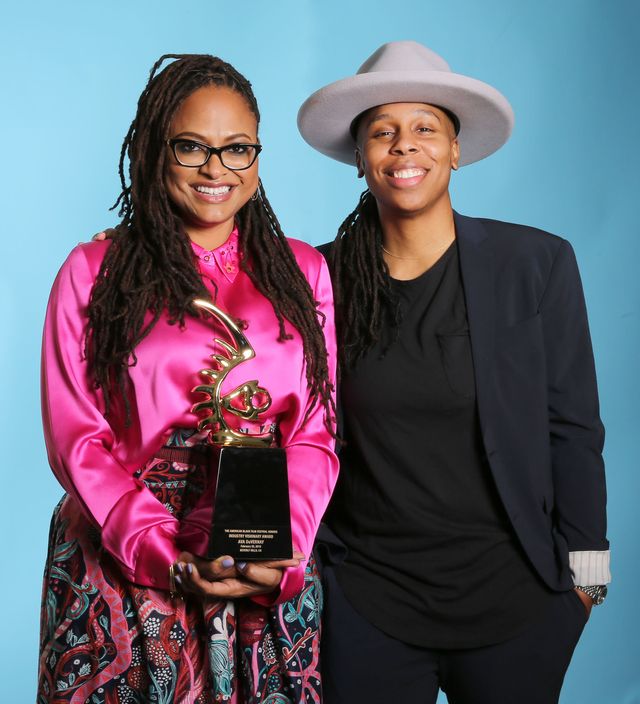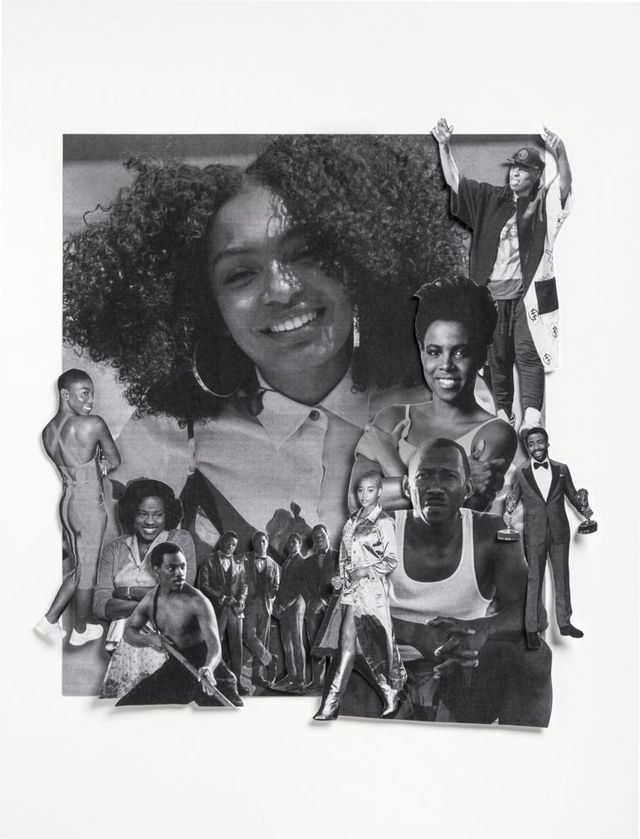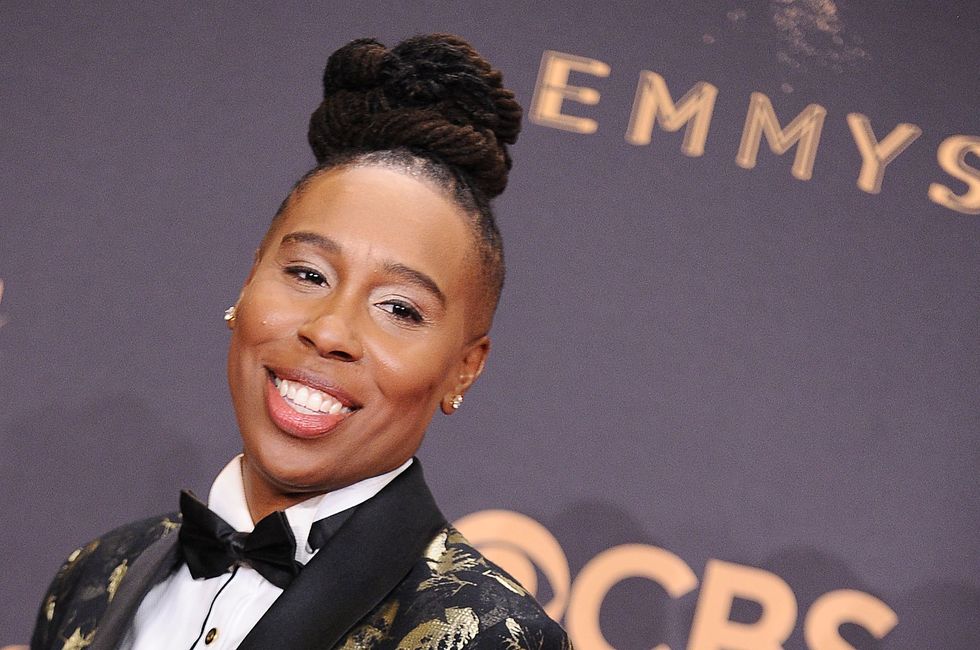The 2017 Emmy Awards was a night of firsts. Atlanta's Donald Glover became the first black man to win Best Comedy Director. Sterling K Brown bagged Outstanding Lead Actor in a Drama Series for his performance in This Is Us – the first black actor in 19 years to do so.
Ava DuVernay picked up four Emmys for 13th, her documentary about the disproportionate number of black Americans incarcerated in the US.
And Lena Waithe became the first black woman to win Outstanding Writing for a Comedy Series for her memorable 'Thanksgiving' episode of Aziz Ansari's Master of None. In her speech, which moved audience members to tears, she thanked 'everybody out there who showed so much love for this episode. Thank you for embracing a little Indian boy from South Carolina and a little queer black girl from the South Side of Chicago. We appreciate it more than you could ever know.'
A few weeks before Lena's Emmy win, we spoke to her about 'Thanksgiving', which she wrote and starred in. Largely based on her own life, it's both a coming-of-age and a coming-out story. It's full of hilarity (her character, Denise, dates someone whose social media handle is NipplesAndToes23) and heartbreak (her mother's response to her sexuality is both tough and touch- ing). Even before any award recognition, the episode went viral.
'I wasn't aware of how starving people were,' says the 33-year-old actor. 'Particularly queer people of colour. I had all these responses, like, "Listen, you told our story." We were absolutely grateful to be able to carry that torch, because we deserve to be seen.'
Lena sees her work as part of a larger movement. Her friends and contemporaries – Glover, Chewing Gum's Michaela Coel and Insecure's Issa Rae – have all created and starred in their own television series.
'We hang out, we communicate, we give each other feedback and advice. That community is such a call back to the Harlem and Chicago renaissances [cultural and artistic movements that spanned the Twenties]. There's a renaissance happening right now and it's happening in Hollywood.' Lena's new project, The Chi, is a TV series about life in Chicago's South Side: 'I feel honoured to be part of this, because what we're doing is cool and great and "now", but I can promise you that, in 20 years, we'll have opened up doors for others to walk through and tell their story.'
You only have to look at some of major film releases in 2018 to see that the Emmys were not a one-off. In February, Marvel released its first African-American superhero film, Black Panther; the title role is played by Chadwick Boseman, and also stars 12 Years a Slave's Lupita Nyong'o and Get Out's Daniel Kaluuya. Ava DuVernay's sci-fi fantasy A Wrinkle in Time is in cinemas now, while a sequel of Eddie Murphy's cult 1988 film Coming to America – the story of an African prince who emigrates to New York – is in the works.
'The world is a better place when everyone gets a chance to tell their story,' says Brian Dobbins, producer of hit show Black-ish, which tackles issues such as police brutality and institutionalised racism, often through a comedic lens.
'People always tell me how much they relate to the show, whether you're black, white, Latino. I was at a dinner and a Persian lady in her fifties said to me, "Black- ish is exactly what my family is like!" When a show is right and it's done authentically, we realise we're all much more alike than we recognise.'
One of the show's stars is 17-year-old Yara Shahidi, who plays bookish and popular Zoey Johnson. Off-screen, Yara is a force in her own right. Politically engaged and smart (she begins her studies at Harvard next year), Yara uses her massive Instagram following of 1.3 million to school her fans about the importance of inclusivity.
Figures such as Yara and Hunger Games' Amandla Stenberg represent a new breed of celebrity: young, powerful influencers who are recognised as much for their activism as their acting roles – and the two are often entwined.
And as for the Academy Awards, what a difference a year makes. In 2016, for the second year in a row, all 20 nominees for lead and supporting acting categories were white. But by 2017, the picture looked refreshingly different: OJ: Made in America picked up Best Documentary Feature, Viola Davis won Best Supporting Actress for drama Fences, and Moonlight marked a real watershed moment in Hollywood history, winning three Oscars in- cluding Best Picture.
'Do I think there was a growing appetite for Moonlight?' asks Tarell Alvin McCraney, the writer behind the film. 'To see black bodies in a space that was both real and beautiful? Yes. I think part of the #OscarsSoWhite hashtag's genesis was from that need.'
From drama to comedy, an influx of films by black creatives followed, reaching commercial and critical success, from the satirical horrors of Get Out, to the story of debauched partying-gone-wrong in Girls Trip, which was the first black-led movie to make $100m (£76.2m) at the box office.
'Moonlight, Get Out and the series Atlanta will go down in history as projects that have changed people's perception of what black cinema and black television looks like,' says Lena. 'It's really inspiring to watch because the industry has no choice but to reach out to us and say, "OK, give us what you've got. We want to support you, because what you guys are doing is obviously striking a nerve."'
This feature was originally published in the January 2018 edition of ELLE. Subscribe to the magazine at a discounted price here and make sure you never miss an issue again.















